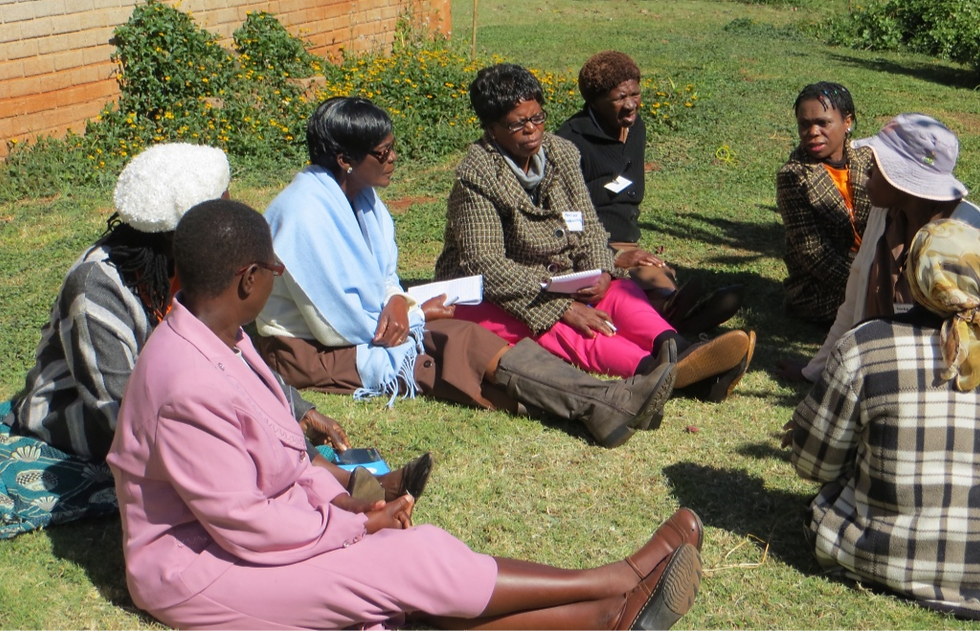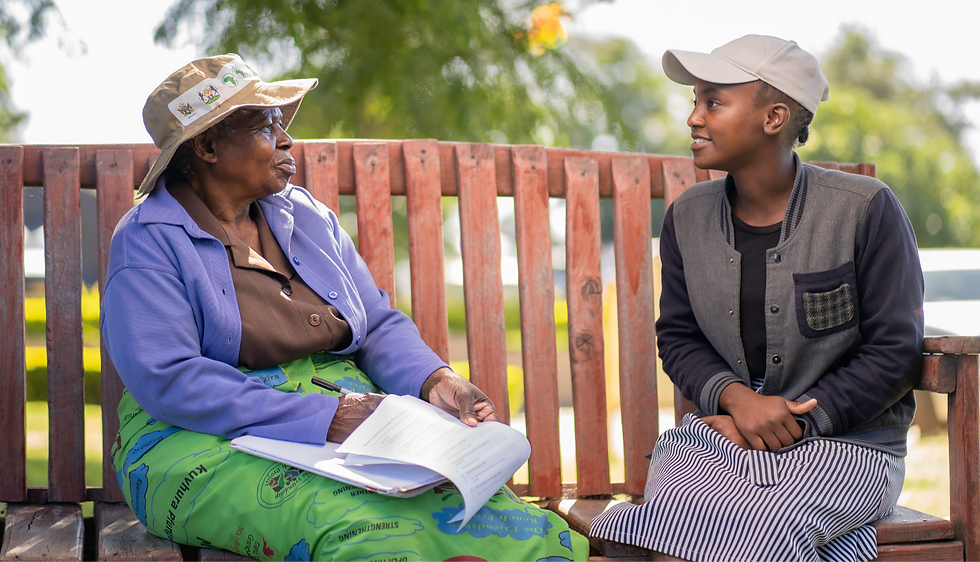Practical Ways to Build a Supportive Culture
- Providence Jongwedzvuku

- Jul 22, 2025
- 3 min read
Updated: Jul 22, 2025

Mental health is a fundamental part of our overall well-being. As the demands of daily life continue to grow, so does the importance of creating a culture of awareness, and support.
Practical Ways to Support Ourselves and Others
Creating a safe supportive space starts with understanding the various ways we can offer help. Mental health support can come in different forms, and being aware of them can equip us to help ourselves and others effectively. Here are some practical ideas:
Open conversations: Encourage open discussions about mental health in both personal and professional spaces. This can be as simple as asking someone how they are doing or sharing your own feelings.
Educational workshops: Invite professionals to discuss various topics, including coping strategies and how to build resilience. This helps to destigmatize mental health struggles and equip participants with helpful tools.
Peer support groups: Create spaces where people can share their experiences. These can be formally facilitated or informal gatherings among friends. The important part is to create a safe space for sharing.
Resource Sharing: Compile and distribute verifiable resources that provide support, such as hotlines, and educational materials. Ensuring easy access to resources can significantly impact those seeking help. A small gesture, like a flyer or link, can open doors for someone in need.
Encouraging Breaks: Promote regular pauses to reset. Whether it’s a 10-minute walk or a quiet moment, these breaks can improve focus and mental clarity.
How to Recognize Signs of Distress
Understanding the signs of distress is vital for timely support. People may not always vocalize their struggles, so being attentive to warning signs can make a difference:
Changes in behavior: Look for significant changes in mood or behavior, such as withdrawal from social activities, sudden anger, or a decline in performance at work or school.
Physical symptoms: Fatigue, insomnia, appetite changes, or unexplained aches can be signs of emotional strain.
Communication changes: If someone suddenly becomes less communicative or starts expressing negative thoughts about themselves, it could be a cry for help.
Be present and observant. Pay attention and listen without distractions. Noticing the subtle signs - a change in tone, withdrawal, or unusual behavior. These small details often signal that someone might need help, even if they haven’t said it out loud. People may not always vocalize their struggles, so being attentive to signs, and showing up with care can make all the difference.

How Can You Improve Your Mental Health?
Taking proactive steps can enhance your mental health significantly. Here are actionable steps to maintain your well-being:
Practice self-care: Self-care is essential. Establish routines that include physical activity, a balanced diet, and hobbies that bring joy. For instance, start with a daily walk or dedicate time each week to a creative passion.
Mindfulness and meditation: Engage in mindfulness practices such as meditation, yoga, or deep-breathing exercises. These activities can decrease anxiety and increase emotional resilience.
Stay connected: Make time to check in with loved ones. Connecting with others creates a sense of belonging.
Learn to set boundaries: Protect your space by setting clear boundaries.
Seek help: There’s strength in asking for help. Find someone to guide you through challenges.

Let's Keep the Conversation Going
The journey toward improved mental health awareness and support is ongoing. As we break the silence and empower one another, we all play a role in building a healthier society. The path can be difficult, but with consistent effort, we can create environments where mental health is prioritized and supported.
At Friendship Bench, we believe everyone has a role to play. Friendship Bench offers training to empower you with tools to create safe space in your home, workplace or community.
Learn more about how to get involved.
We can make strides toward a more supportive world - one conversation, one resource, and one action at a time.
People need support, with your help we can reach out to more people. We invite you to:
Donate: Your contributions can help us expand our reach and support more people.
Support a grandmother: For $25 a month, you can empower a grandmother to continue this vital work. Our goal is to support 4000 grandmothers in 2025.
Spread the word: Help us raise awareness by sharing with your friends and family.
Together, we can build stronger, healthier communities and promote collective healing. Contact us to learn more about how you can get involved.




Comments